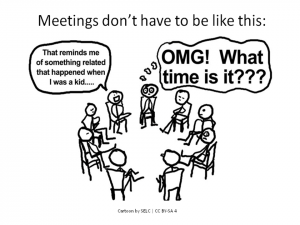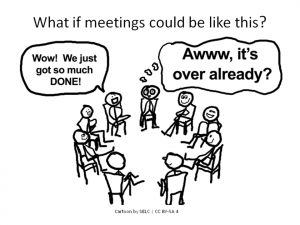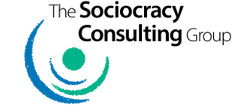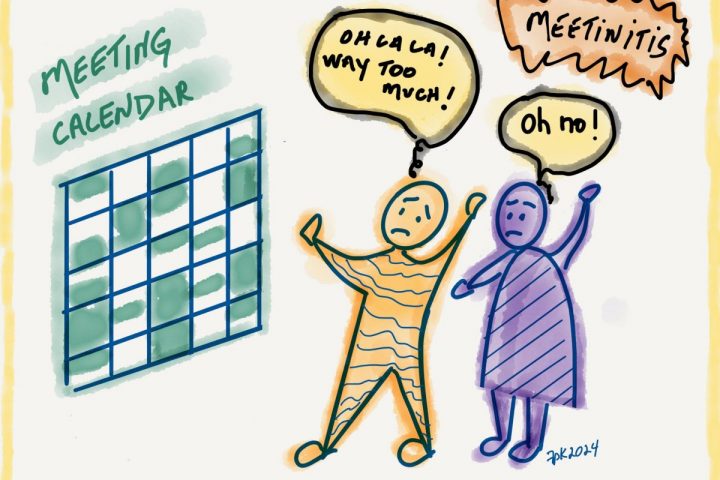We’ve all been to meetings that are a disappointment or even a disaster, and hopefully others that are a dream – where the group gels, people think creatively together, and the whole is greater than the sum of its parts. What makes the difference? Here are five ways to avoid mistakes that can tip the scales when you are the facilitator for a meeting – and tip them back again when you correct the mistakes. 1. Agreement about who is facilitator
1. Agreement about who is facilitator
The facilitator ensures that the group has clear processes and that everyone’s voice is heard. Other people can help, but being vague about who is the facilitator usually makes things messy. It’s a paradox. Having one person who is clearly in charge provides structure and safety for everyone to take part. Sometimes in the name of equality groups avoid clearly designating who is leading the meeting, and hope for the best. Occasionally that can work. If there are items to discuss that are emotional for participants, that strategy can come crashing down around your ears.
2. Advance preparation
It is possible to spend as long or longer preparing to facilitate a meeting as actually leading the meeting. When the facilitator prepares well, the payoff is enormous in terms of a sense of accomplishment and even pleasure at the end of a meeting on the part of all participants. There are multiple aspects to advance preparation. Here are a few:
a. Creating the agenda ahead of time. That includes identifying what even needs to be on the agenda and what is better handled another way or at a later meeting.
b. Distributing the agenda ahead of time.
c. Deciding on priorities if time runs short.
d. Anticipating challenges. This can include challenges to you being the facilitator, dealing with people who tend to dominate the meeting, what to do when participants’ emotions run high, and what to do when your emotions run high (yes, it will happen).
3. Clarity about how to handle each agenda item
This is part of advance preparation. For each item, it’s helpful to think about
a. How to introduce it, and who will do that.
b. What process you will use to address it, and what outcome you desire. Do you plan to do picture forming only? Do you want to formulate a proposal? Do you want a decision in this meeting? If you include this information in the agenda, participants know what to expect and can be better prepared; they may also be more relaxed.
4. Feedback about the meeting
If you want continuous improvement in how the group functions in meetings, ask for – and make sure you receive – feedback in a closing round at the end of every meeting. Request feedback about the meeting as a whole and about the facilitation specifically. From time to time ask someone in the group to take notes and give you specific feedback on your facilitation afterwards, to help you grow as a facilitator. Mistakes happen; the trick is to learn from them. Following these suggestions will help you learn, so you can be your best self and bring out the best in your group.
5. Investment in developing yourself as a facilitator
Excellent facilitation is both a science and an art. It helps bring out the best in a group, so that the group can accomplish its purpose. Good facilitators make it look so easy that we may overlook what went into developing their skills. To expect that you will somehow know what to do in every situation in a meeting without training and practice would be like expecting that you could fly an airplane or play the flute without training and practice. Investing in developing yourself as a facilitator can pay off in every aspect of your life, and of course for the group that is fortunate enough to have you lead meetings for them.

Talk with us to find out how we can help your group have meetings where participants leave with a joyful sense of having accomplished what they came to do.



